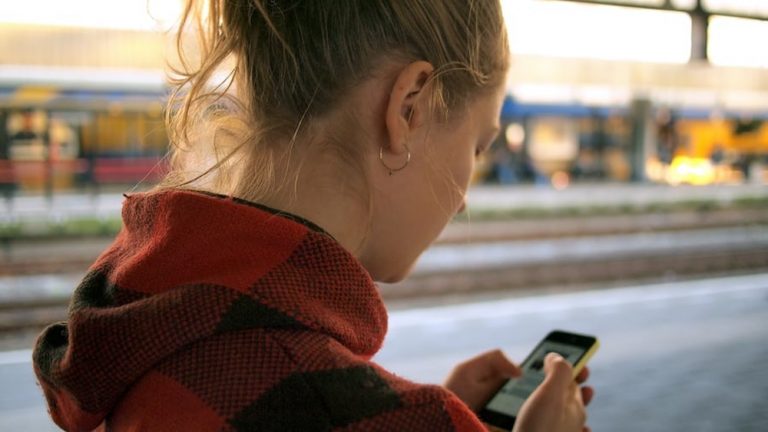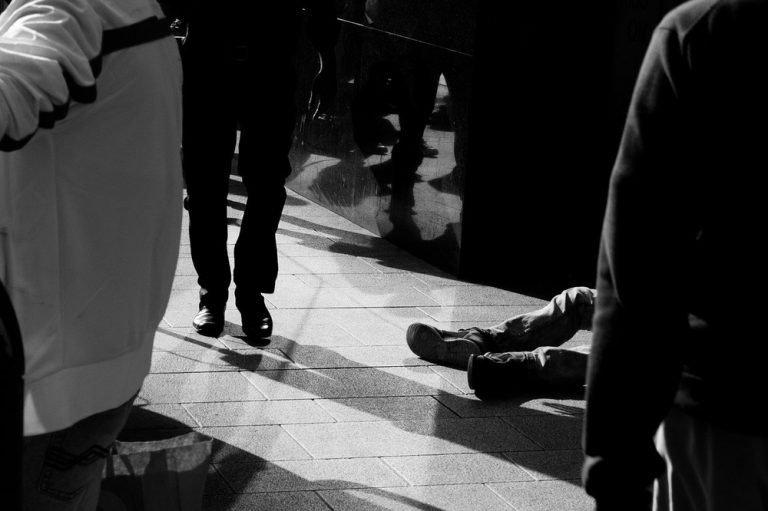Why Don't Bystanders Stand Up To Bullies? 7 Reasons Why


By Antoine G Larosiliere
We all have been a bystander at some point in our lives, and the question, “why don’t bystanders stand up to bullies” has probably crossed your minds too.
We all have been a bystander at some point in our lives and the question, “why don’t bystanders stand up to bullies,” has probably crossed your minds too.
Bystanders are people who are witnesses to a particular action or incident, but aren’t the aggressors in it. According to the U.S. Department of Justice, “a bystander is present at 70 percent of assaults and 52 percent of robberies.” This makes sense to me, and I’m sure it also applies to bullying situations. But, why don’t bystanders stand up to bullies? There’s a saying, “before you can prescribe the medicine, you have to diagnose the problem.” After doing some research, as well as using my own experiences as an educator; the answer became clear.
Bystanders don’t stand up to bullies mostly because they fear retaliation from the bully, they don’t want to be labeled a “snitch,” they believe they wouldn’t be much help, and that someone else will do something. They also believe adults don’t care enough to respond appropriately to the bullying. Other bystanders lack empathy and were also given bad advice to “mind their own business.”
according to researchers, “fear” is the main reason children stay silent.

#1 Fear retaliation
During a particular activity in my anti-bullying program students were asked, “would they say or do something if they saw someone being bullied?” The few children that claimed they wouldn’t, said it was primarily due to their fear of retaliation. Coincidentally, according to researchers; “fear” is the main reason children stay silent. Being “frozen with fear” is part of the brain’s normal biological functioning, and sometimes we “freeze instinctively in uncomfortable or dangerous situations. No one wants to become a target of the bully. Most of the time the bystanders freeze or don’t intervene because they have been bullied before, and do not wish for it to happen again. Instead of helping the victim, they are too often just grateful it’s not happening to them.

#2 I don’t want to be a “snitch”
As a parent, and an educator, I’m always talking to children about standing up for others. The response that comes up particularly amongst middle school and high school students more often than I would like is, “I’m not a snitch” or, “that’s snitching.” There’s a huge stigma associated with the word “snitch” and in my three years teaching an anti-bullying program; most students have a false meaning of the word. The “no snitching” agenda has been propagated to our communities through hiphop music and street culture. Children look at this label as a death sentence amongst their peers and in their communities, and they would rather avoid this label by not reporting the harm that’s being done to others.
#3 I can’t help much
Many of us parents and educators were raised in different times. Some of us still believe it’s a “rites of passage,” while others see it as a plague on humanity. Regardless of which side you fall on, we all at times have been confused or helpless in the best ways to address a bullying situation. If the adults don’t know what to do, chances are; neither does our children. Specific strategies and instruction on how to intervene should be made more available and accessible. Children and adults need to know what to say, what to do, who to speak with and how to report the bullying situation.

#4 Someone else will do something
In schools, students often assume the teachers or adults will intervene to stop a bullying situation. The problem is most bullying situations happen where adults aren’t present. This assumption is called “diffusion of responsibility.” Diffusion of responsibility is a theory which says, “when the number of bystanders increase, the personal responsibility that an individual bystander feels decreases.” In a well-known study, researchers found that, “when bystanders were alone, 75 percent helped when they thought a person was in trouble. However, when a group of six people were together, only 31 percent helped.”
It must be reinforced when teaching children about bullying that intervening is their responsibility as well.
#5 Adults don’t care
Times have changed, and even though some adults may take bullying lightly; most adults understand there could be grave consequences in doing so. Much progress has been made in bullying awareness and prevention yet, children seem to feel some adults “just don’t care.” Some children even reported bullying only to find out the adult either ignored it or, failed to take serious action against it.

#6 Lack of empathy
Another response I would get from students in my anti-bullying program when asked, “why would they do nothing as a bystander” is “I don’t care.” This statement implies they lack empathy for what others are going through, especially those they don’t know. Fortunately empathy is a skill not a trait and there is plenty of opportunity for growth. Teaching empathy should be an interval component to every bullying prevention program.
#7 None of my business
According to research, “bullying stops in less than 10 seconds, 57% of the time when someone intervenes on behalf of the victim” (Craig & Pepler, 1997). The main advice that I’ve heard; not from educators, but mostly from parents is, “mind your business and stay out of it.” The need to protect your child at all cost is inherent to parents, and this is the source of such advice. The thinking is, if their child does not get involved, they will likely stay away from danger. While this might be good advice in certain circumstances; it’s harmful for all parties involved in bullying situations.
Everyone is a potential bystander, and the reasons we don’t intervene are different from person to person. Now that we have a better understanding of why we don’t act, we can focus on the best ways each one of us could intervene. Hopefully this article has been helpful. Also visit my YouTube channel for more insight to these topics.
The Bully Experience "Daniel's Story"

Sign up for our newsletter and Read the novel For Free!
Stay updated. Sign up for our newsletter, and get the first two chapters of The Bully Experience Daniel’s Story absolutely free.